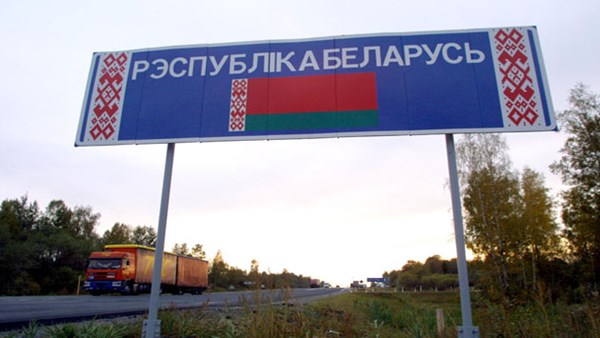Russia prepares to absorb Belarus as Minsk's debt mounts
Russian President Vladimir Putin and self-proclaimed president of Belarus Alexander Lukashenko put their signatures under the integration decree of the Union State, approving 28 programs in the areas from gas price regulation and defense to central banks policy.
The document, the preparation for which was going slowly for more than three years and accelerated dramatically after the elections in Belarus, was signed via a videoconference on Thursday.
Russia will continue to "provide assistance to the fraternal Belarusian people," Putin told Lukashenko, who last year received a loan of $ 1.5 billion, and this year discussed the possibility of a new loan for another $ 1 billion.
The Union State is a "priority of priorities" for Minsk, Lukashenko replied to the Russian president.
The 28 union programs agreed after Lukashenko's visit to Moscow in September involve the creation of single oil and gas markets (Belarus will have Russian energy prices), a unified public procurement policy (allowing Belarusian companies to take part in Russian government projects), a single agrarian and industrial policy, as well as the unification of accounting.
The next stage is the adoption of 400 acts and bilateral agreements, said Russian Prime Minister Mikhail Mishustin. "In fact, a new regulation will be created now on a common integration basis. This is a large-scale task and, of course, a great responsibility," he added.
At the same time, the Military Doctrine of the Union State was signed to replace the one adopted 20 years ago. Although neither Moscow nor Minsk says what exactly will change in it, Russian Defense Minister Sergey Shoygu called the new document a response to the threats and pressure of the "so-called collective West."
As part of the food program, uniform rules for the supply of food products to the union state market will be established, said Prime Minister of Belarus Roman Golovchenko. As for energy carriers, the general principles of the single gas market are planned to be established by July 2022 and will take effect on December 1, 2023.
The timing of integration is not random. The aid allocated by Russia to Belarus in August last year, when the protests almost overturned the Lukashenko regime, will last only until the beginning of 2022, S&P analysts estimated earlier.
An external debt of $ 42.2 billion, which is 90% denominated in foreign currency remains a big problem for Belarus. Minsk has almost no reserves to repay it. The National Bank of Belarus has only $ 8.7 billion in reserves, of which only $ 4 billion is real currency, and the bulk is in gold, a position in the IMF debt notes and illiquid assets.
Minsk lost possibility to continue borrowing in the West due to sanctions that closed access to capital markets. At the same time, when large repayments of Belarusian Eurobonds will become due in 2023, Lukashenko will face a moment of truth.
Of the total Belarus’ debt, according to the World Bank, loans from Russia (as of 2020) account for $ 8.1 billion. This amount, however, could grow to almost $10 billion after Moscow lends more money to Minsk.
The European Parliament called for additional sanctions against Russia amid continued integration with Belarus and militarization of relations between the two countries.
In the resolution adopted on October 7, the European Parliament stated that Lukashenko is not the legitimate president of Belarus, his powers expired on November 1, 2020, and therefore any documents with his signature have no legal force.
The roadmaps signed by Putin and Lukashenko imply the creation of a single oil and gas market, the supply of $ 1 billion worth of weapons to Belarus and the strengthening of economic integration. And this "increases the risk that Lukashenko will continue to trade sovereignty in exchange for even greater support from Russia," the European Parliament said in a statement.
